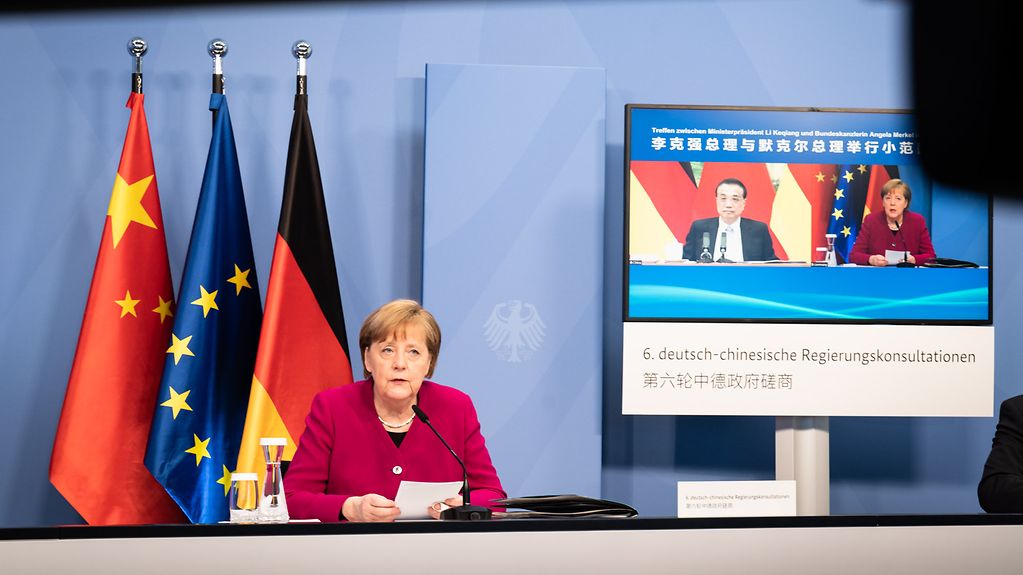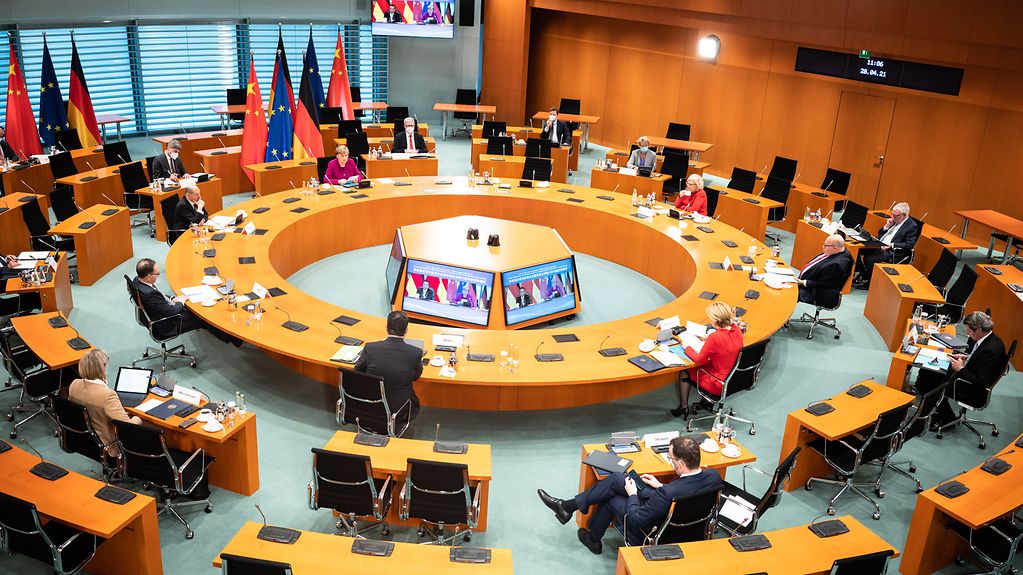Virtual Sino-German government consultations
Joint efforts to contain the COVID-19 pandemic, cooperation on environmental protection and climate action, and cooperation arrangements in other areas – these were the main focuses of the 6th Sino-German government consultations. Human rights were also discussed.
3 min reading time

The 6th Sino-German government consultations were the first to be held online.
Photo: Bundesregierung/Steins
For the first time, as a result of the pandemic, the government consultations adopted a virtual format. Alongside Chancellor Angela Merkel and Prime Minister Li Keqiang almost 25 ministers and ministry representatives from the two countries took part in the consultations.
The Chancellor and the Chinese Prime Minister discussed economic issues, the pandemic and the current status of bilateral relations. Also on the agenda were developments in the field of civil society and human rights.
Cooperation to combat the pandemic
Chancellor Angela Merkel looked at the challenging year behind us since the outbreak of the COVID-19 crisis. She stressed the fact that the pandemic has cost many lives, and is a severe test for societies and economies. “We can only contain this pandemic if we work together – China and Germany can play an important part,” she said.
Angela Merkel advocated an open and transparent discussion about vaccine production and called for reciprocal recognition of vaccines - at least at the World Health Organization – to help us win the battle against the virus.
EU-China investment agreement
Looking back to Germany’s Presidency of the Council of the European Union last year, Angela Merkel stressed the importance of political negotiations on the investment agreement between the EU and China.
The investment agreement could be a foundation stone for building transparent economic relations, mutual market access and reciprocity, and thus also “for greater legal certainty and transparency” said the Chancellor.
This will also involve dialogue regarding the ILO core labour standards and reasonable working conditions everywhere – both in Germany and in China.
Bilateral cooperation arrangements
Discussions during the plenary session looked at the full spectrum of bilateral relations and individual cooperation arrangements at ministerial level.
All in all, six declarations of intent and one action plan were signed covering a wide range of fields such as joint economic projects, environmental and climate policy, cooperation in the field of science and research, health, development cooperation, food safety, transport and labour and social affairs.
Human rights
The Chancellor stressed how important it is to discuss even difficult issues regularly. Conflicts can only be resolved if channels of communication remain open. That is why the human rights dialogue has traditionally had a part to play. “This is an area where we have differences of opinion, particularly for instance if we consider the situation in Hong Kong.”
In this context she called for a swift resumption of the Sino-German human rights dialogue. “It is not enough for the two of us to discuss these issues. They should be explored in depth, particularly by the Ministers of Justice.”

International conference room at the Federal Chancellery. After the bilateral talks between the heads of government, the ministers of the two countries took part in consultations.
Photo: Bundesregierung/Steins
China hosted this year’s government consultations. Since 2011 the consultations have been held once every two years. After the two heads of government met for bilateral talks, a plenary session was attended by the ministers from the two nations with responsibility for foreign policy, justice, finance, economics, commerce, industry, transport, education, science and technology, health, agriculture, the environment, labour and development. A video conference also allowed the leaders and ministers of economic affairs to engage in discussions with representatives of major companies from the two countries.